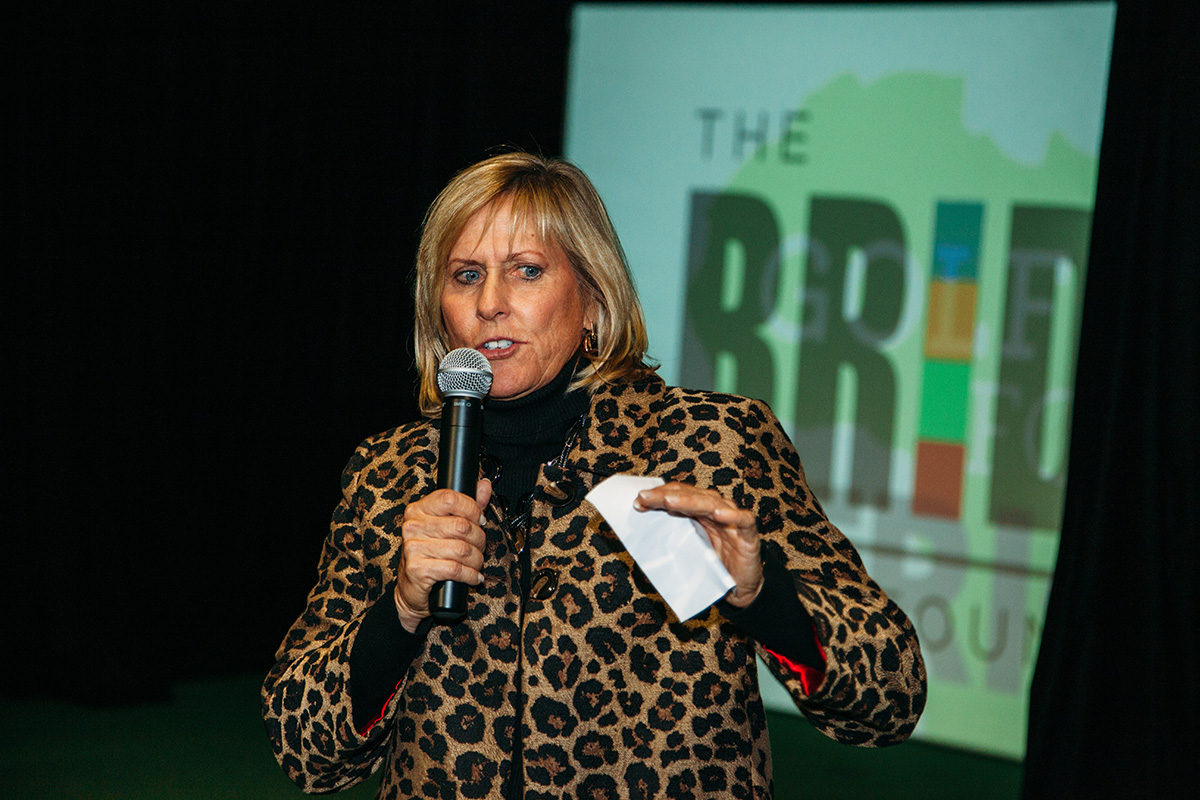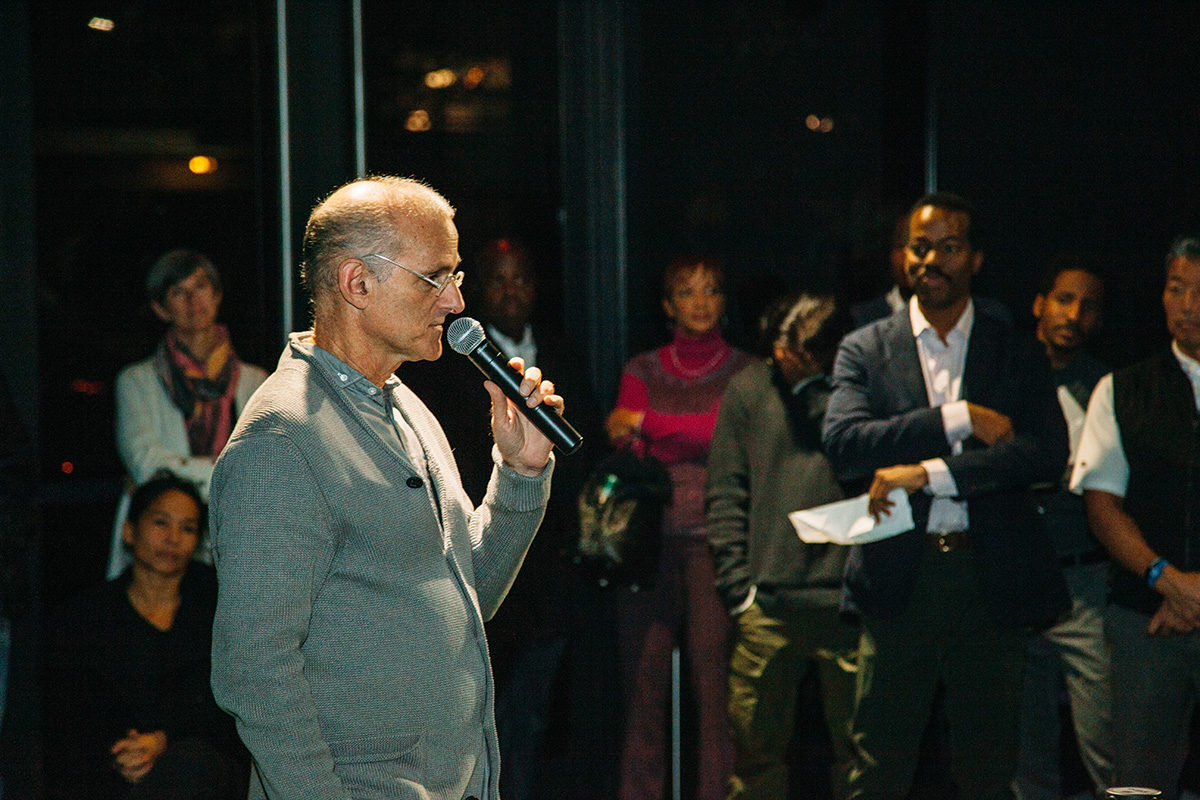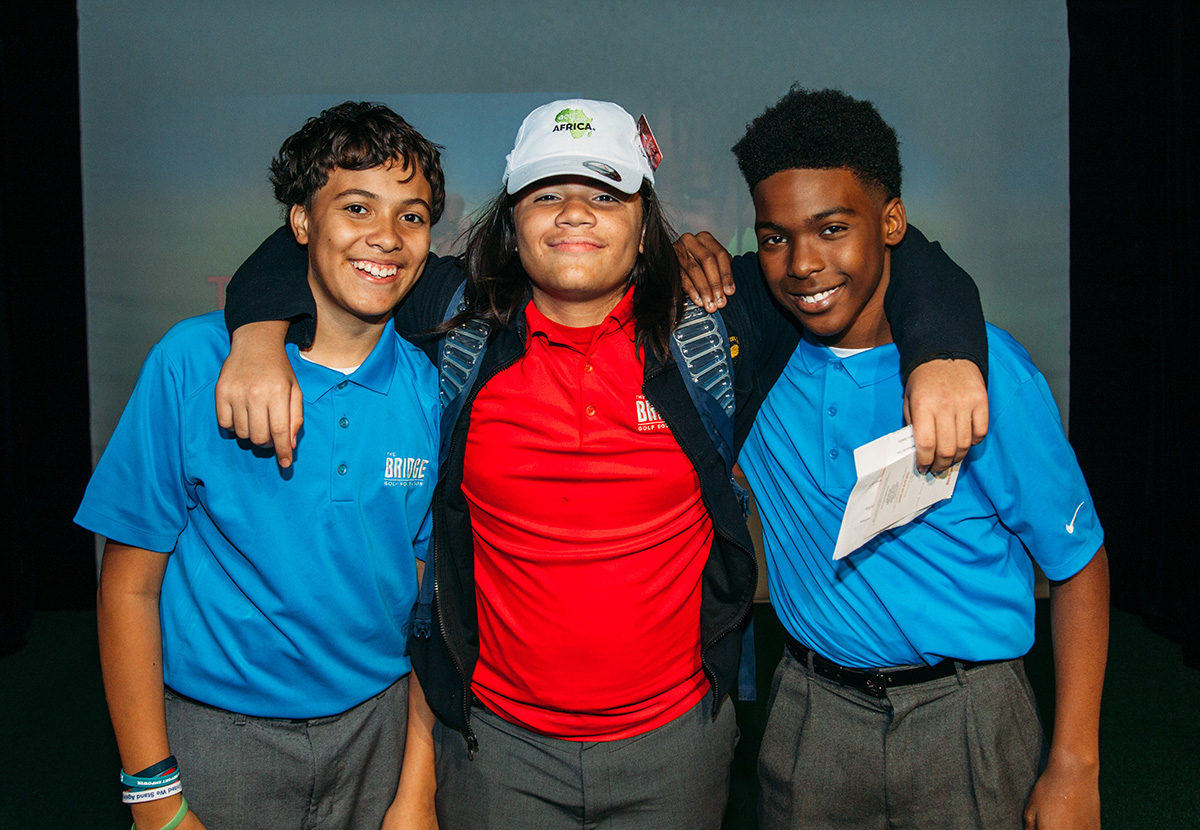
Betsy King at Wednesday night’s launch party.
Reggie Mays Jr. was the one who first made a connection between the sign at the golf course and the mission of our Foundation.
As you drive toward the clubhouse of The Bridge in Bridgehampton, you pass a large art installation, a sign that reads “There Will Be No Miracles Here.” For Bob Rubin, the club’s owner and co-founder of our Foundation, the sign was a nod to the feeling of futility that golf inspires in many players. But Mays, the coordinator of our after school program, saw a message of hard work and perseverance.
“Everything good that’s going to happen with this program is going to happen through the hard work of our young men, and the people in this room, and the people you reach out to,” Mays said on Wednesday night to a crowd gathered at our Learning Center to celebrate the launch of a new charitable initiative.
In partnership with Betsy King’s Golf Fore Africa, our goal is to raise $45,000 to build wells for three villages in Zambia. King, a member of the World Golf Hall of Fame who won 34 tournaments and six major championships in a 28-year LPGA career, was in Harlem for Wednesday night’s launch party. She founded Golf Fore Africa in 2007 after a life-changing trip to Rwanda. The extreme poverty she saw there motivated her to form the charity, which works with the golf community to fund development projects in Africa. For the past two years, water projects have been the focus.

Co-Founder Bob Rubin, with microphone, and Executive Director Farrell Evans, right.
On Wednesday night, King talked about the obvious need for water for survival and hygiene, but also pointed out the psychological impact that comes with water security. Parents can take care of children. Children can go to school and begin to see a life beyond mere survival.
“Not only can you not live without water, but you can’t dream beyond yourself because you spend all of your time getting water,” King said. “It’s life-changing when water comes to a village.”
King also spent time with our after school students on Tuesday, even offering a few golf tips, and she came away impressed. She spoke on Wednesday about her own success as a player, and the traits she saw in our young men that will serve them well in this project.
“I was an underdog who used perseverance to get the job done,” she said, pointing out that she played professionally for seven years before winning her first tournament. “We need patience and perseverance to address the global water crisis.”
The evening also featured two videos. In the first, our students explained the need for their water project, offered a primer on the science of water, and discussed water conservation efforts with Gregg Stanley, the superintendent at The Bridge. (Scroll down to watch this video.) In the second, produced by frequent Golf Fore Africa partner World Vision, we saw firsthand the difference a well can make in the lives of African villagers.

Michael Alameda, left, Alejandro Martinez, center, and Blake Wilson spoke about the impact donations would have on the lives of villagers in Zambia.
Three of our young men — Michael Alameda, Alejandro Martinez and Blake Wilson — also addressed the crowd in person, explaining the impact a donation could have. A gift of $50 can bring clean water to one person for life, $250 for a family, and $1,000, $5,000 or $15,000 for an entire village.
But this project is not only about philanthropy. In the course of our students’ research into the water crisis, they learned about tippy-taps, handwashing stations built from found materials that can have a dramatic impact on hygiene and disease prevention in developing countries. They recognized an engineering opportunity, which STEM Program Co-Leader Veeshan Narinesingh announced on Wednesday night. In the coming months, our students will work to design and build a mobile, collapsible tippy-tap.
Margo Weiss from the Columbia Water Center at Columbia University was also on hand to talk about her organization’s involvement in the project. Columbia students will be working with our young men as mentors, doing hands-on learning projects and organizing field trips.
This water project is a perfect fit for our Foundation because it ties into so much of what we do, and because it is a tangible way for our young men to make a difference.
“We’ve been talking about what it means to give back when you have almost nothing to give,” Mays said. “You don’t have a job or means to give financially, but you can use your mind and your hands and put your boots on the ground. That’s how our young men can give.”
We covered a lot on Wednesday night — the global water crisis, our plans for this water project, golf and water conservation, the science of water and engineering solutions — but it kept coming back to that sign at The Bridge.
“When we installed it, I was really just thinking about golf,” Rubin said. “But I’m happy to see that these young men have appropriated the phrase.”
You Can Help: To help us reach our goal of $45,000 to build three wells in Zambia, please visit our donation page.